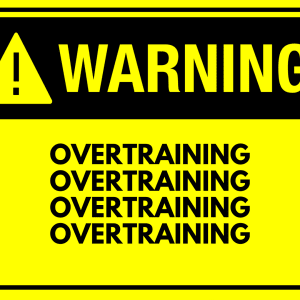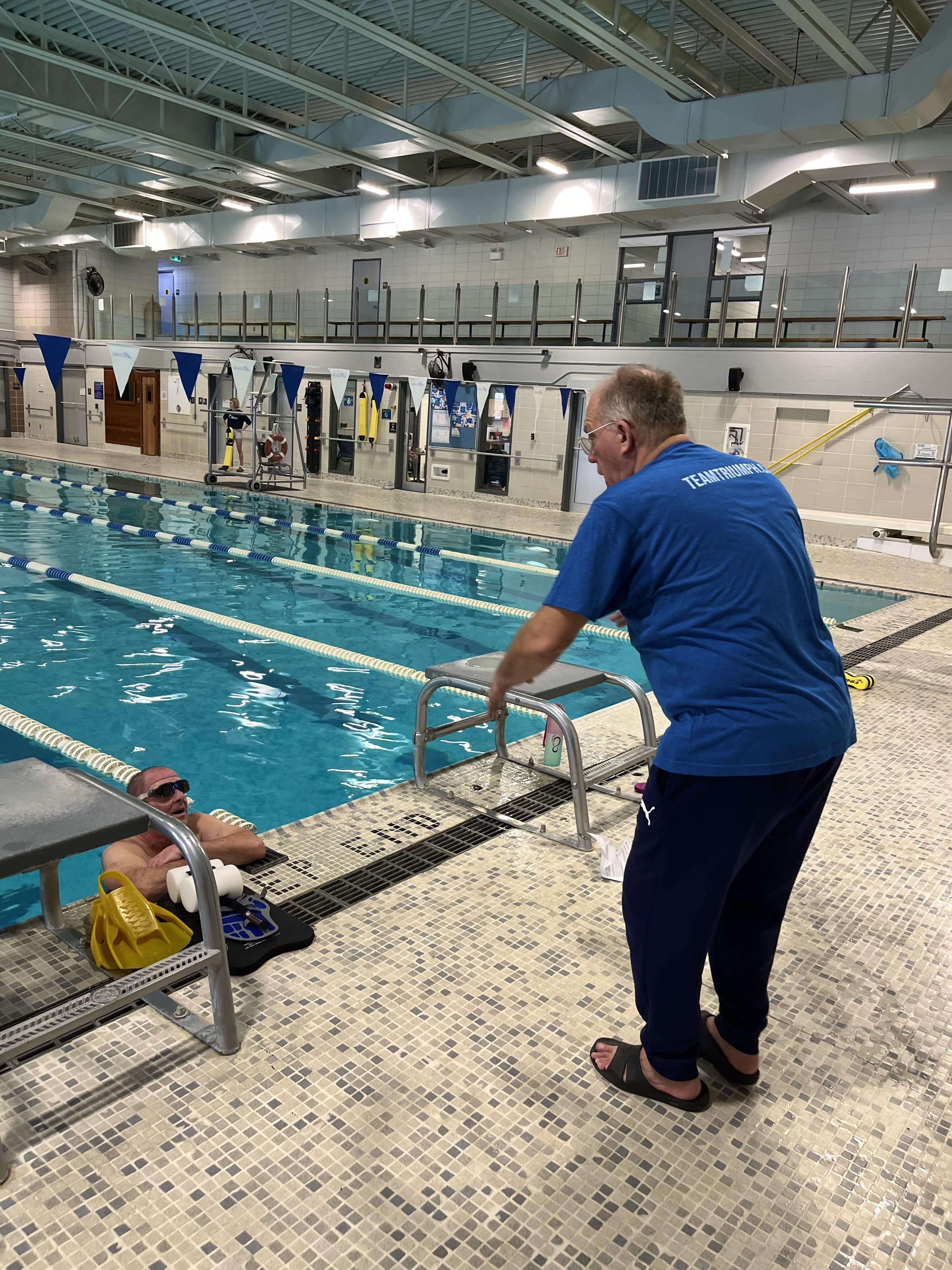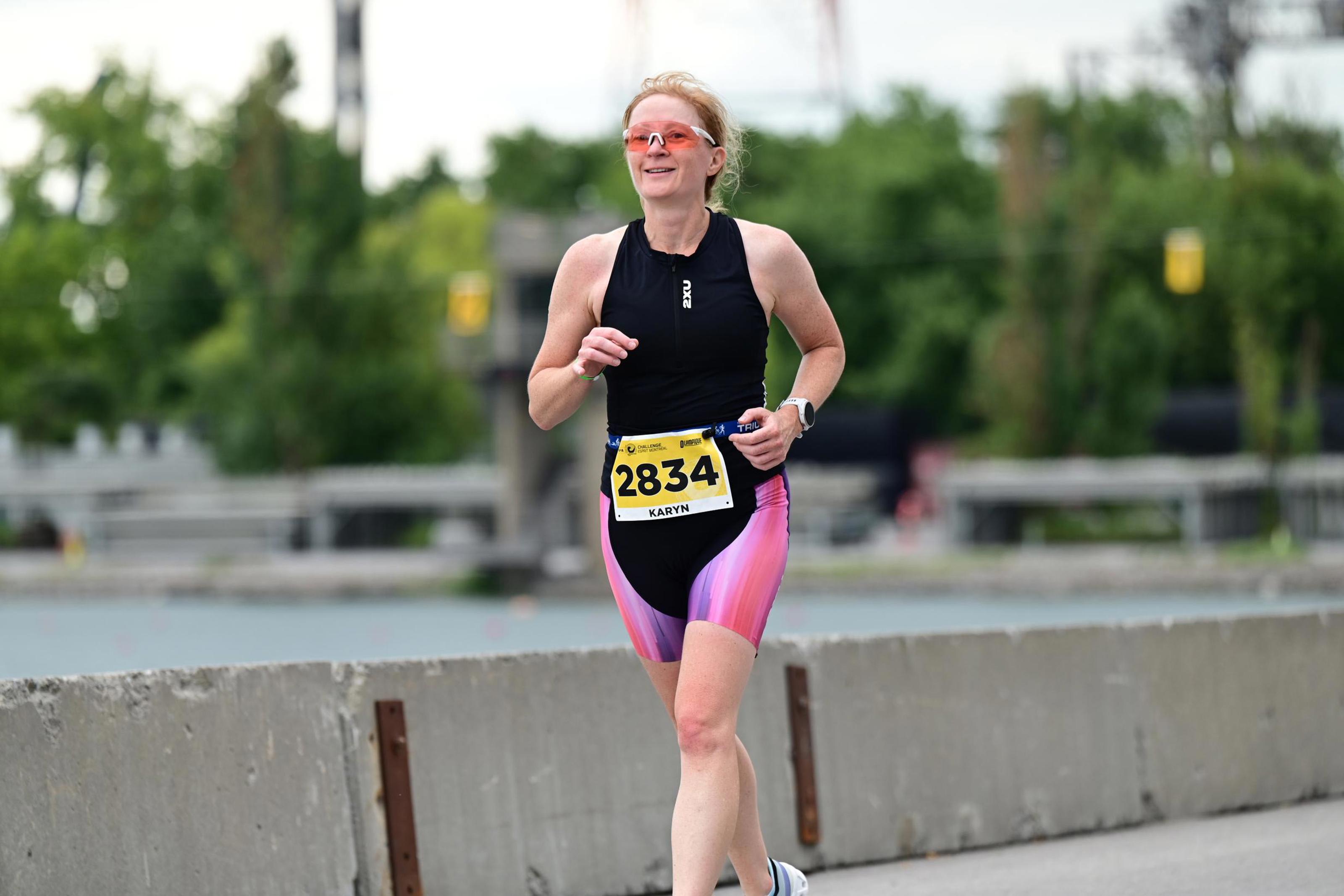
Triathlon training demands dedication, consistency, and perseverance. However, there's a fine line between pushing your limits and overtraining.
Overtraining syndrome can lead to decreased performance, increased risk of injury, and mental exhaustion. Recognizing the signs of overtraining and implementing strategies to avoid it are crucial for any triathlete's success and well-being.
Signs and Symptoms of Overtraining:
Persistent Fatigue: Feeling constantly tired despite adequate rest is a red flag for overtraining. This fatigue may not improve with rest days and can interfere with daily activities.
Decreased Performance: Plateauing or declining performance in training sessions or races, despite increased effort, can indicate overtraining. Slower swim times, reduced cycling power output, or difficulty maintaining pace in runs are common signs.
Increased Resting Heart Rate: Monitoring your resting heart rate can provide insights into your body's recovery status. A consistently elevated resting heart rate may indicate overtraining.
Insomnia or Poor Sleep Quality: Overtraining can disrupt sleep patterns, leading to difficulties falling asleep or staying asleep, even though you feel physically exhausted.
Persistent Muscle Soreness or Joint Pain: While some muscle soreness is expected in triathlon training, persistent or worsening soreness, along with joint pain, may indicate overtraining and potential injury risk.
Decreased Immune Function: Overtraining can weaken the immune system, making athletes more susceptible to illnesses like colds, flu, or infections.
Mood Disturbances: Overtraining can affect mental well-being, leading to increased irritability, mood swings, anxiety, or depression.
Strategies to Avoid Overtraining:
Adequate Rest and Recovery: Incorporate rest days into your training schedule to allow your body to recover and adapt to the training load. Quality sleep is essential for physical and mental recovery.
Listen to Your Body: Pay attention to signs of fatigue, soreness, or decreased performance. Adjust your training intensity, duration, or volume accordingly, and don't hesitate to take extra rest if needed.
Cross-Train and Mix-Up Workouts: Include variety in your training regimen by incorporating cross-training activities like mobility, functional strength training, yoga, or Pilates. This helps prevent overuse injuries and mental burnout.
Nutrition and Hydration: Fuel your body with balanced nutrition and adequate hydration to support your training demands. Consult a sports nutritionist or dietitian to optimize your dietary intake for performance and recovery.
Set Realistic Goals: Establish realistic and achievable training goals based on your current fitness level, schedule, and lifestyle. Avoid the temptation to constantly push beyond your limits, as this can lead to burnout.
Recovery Techniques: Incorporate recovery techniques such as foam rolling, stretching, massage, ice baths, or compression garments into your routine to aid muscle recovery and reduce soreness.
Monitor Training Load: Use training metrics like training volume, intensity, and duration, along with tools like heart rate monitors, GPS watches, or training apps, to track your training load and avoid sudden spikes that can lead to overtraining.
Overtraining is a common pitfall in triathlon training, but with awareness and proactive measures, it can be avoided. By recognizing the signs and symptoms of overtraining and implementing strategies to prioritize rest, recovery, and balanced training, triathletes can achieve their performance goals while maintaining overall health and well-being. Remember, consistency, patience, and self-care are key to long-term success in triathlon.
Julia Aimers
CSEP Clinical Exercise Physiologist
CSEP High-Performance Specialist
Certified Triathlon, Cycling, Yoga and Swimming Coach
USA Cycling Level 2 Coach
Training Peaks Accredited Coach

I would highly recommended Eric and Team Triumph!
Ian Ross

A year ago I could only tread water and had not run since childhood. With the amazing Virtual Olympic course, support, guidance, and tips from of all the folks at Team Triumph I've ended the season with my first Olympic distance triathlon under my belt and am hooked! Really looking forward to the 2025 season and even to the hard work over the winter to prepare. Karen Houle

I wanted to let you know that the Perth triathlon was a great experience, I somehow placed third in my age group! What a supportive group of participants (including Team Triumph athletes), cheering bystanders and volunteers.
Thanks to your swim lessons, I learned the technical basics and gained confidence to get back in the pool after decades. And it was really special doing this with Ann Laidlaw, my bestie for many years. We did a couple of additional swims with Kevin and Team Triumph people, also a great way to continue learning and practicing good technical form.
I will continue with lane swimming and who knows, maybe there's another triathlon in my future!